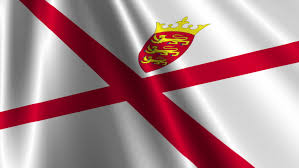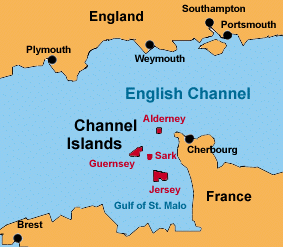
A Jersey Trust offers many advantages to families looking for a secure political environment along with an asset protection and estate planning platform.
The Jersey Trusts Law of 1984 codified many aspects of old English common laws pertaining to trusts. This law modernized trusts which have been around for centuries. Since 1984, Jersey established trusts for the protection of their beneficiaries.
Jersey Trusts are not registered with the government affording them the greatest level of privacy.
Offshore Trust Benefits
A Jersey Trust enjoys these types of benefits:
• Total Foreign Ownership: Foreigners can create trusts for foreign beneficiaries.
• Privacy: None of the trust documents are filed in any public records for complete privacy.
• No Taxation: Neither Jersey or the UK can impose any taxes on a trust. However, American taxpayers and other in countries taxing worldwide income must report all income to their governments.
• Fast Formation: A trust can be created in one day.
• Flexibility: The law allows trusts to engage in trade and business outside of Jersey.
• Control: The settlor determines when and how and how much of the income and assets will be distributed to the beneficiaries and the manner of management by the trustee.
• Asset Protection: All of the settlor’s assets are transferred to the trustee who owns them so they are protected from the settlor’s and beneficiaries creditors.
• Estate Planning: A perfect estate planning vehicle.
• Protector: The settlor can appoint a Protector to oversee the trustee and ensure the settlor’s Trust Deed conditions and the spirit of the settlor’s Letter of Wishes are complied with.
• English: As a British Territory, Jersey’s official language is English.

Jersey Trust Name
The trust name must never be exactly alike or resembling the name of any other legal entity in Jersey.
Trust names must end with the word “Trust”.
Settlors
Settlors can be citizens and residents of any country. However, in order to create a completely tax-free trust, settlors cannot be Jersey residents (or citizens of or domiciled in the UK).
The trust is created when the settlor executes a Trust Deed.
Settlors may request trustees to manage the assets in a particular manner. A settlor can issue a “Letter of Wishes” in order to direct the way assets are administered along with other wishes. However, while a Letter of Wishes can be used for guidance by the trustee, it is not legally binding. Normally, this letter provides guidance on investing policies, income distribution, and assets distributions.
Trust Deed
A Trust Deed is the legal document signed by a settlor in order to create a trust.
Typically, trusts are “Discretionary Trusts” allowing the settlor great discretion to exercise power over when and how the beneficiaries can benefit from the income and distribution of the trust’s assets. Beneficiaries do not have any right to challenge the settlor’s requirements for distributing the assets in a discretionary trust.
Legal ownership of the assets passes onto the trustee once the Trust Deed is signed. This is why it uses the word “Deed” as it conveys title to the trustee who become the new owner of the assets.
Trust Deeds can be tailored for every settlor’s needs and desires. Trust Deeds are not required to be filed with the Jersey Registrar so they remain private.
Protector
Settlors have the power to exercise additional influence by appointing a “Protector” in the Trust Deed. The powers of the Protector will be included in the Trust Deed. However, usually the Protector has the power to decide whether the trustee can distribute funds to the beneficiaries. In addition, Protectors may be able to remove trustees and appoint new ones.
Typically, a settlor appoints a trusted family friend or a financial advisor as the Protector.
Normally, a Protector protects the assets and the beneficiaries while making sure the trustee follows the conditions in the Trust Deed and the spirit of the Letter of Wishes.
Trustees
A trustee can be a national of and reside in any country. If a resident trustee is appointed, that will not subject the trust to any resident Jersey taxation as long as all beneficiaries are non-residents and the assets are held outside of Jersey and no income is generated inside Jersey with the exception of Jersey bank interest.
The law requires trustees to perform the following functions:
• Acting with impartiality for the interests of the beneficiaries;
• Maintaining trust accounts and records or trust assets, income, expenditures, distributions, and management of the trust;
• More than one trustee requires acting in concert;
• Preserve and enhance the assets in a reasonable manner;
• Avoid making risky and speculative investments; and
• Administering the trust as a prudent person with skill and due diligence and always acting in utmost good faith.
While the prevailing duties of the trustee will be provided in the settlor’s trust instruments (documents), they cannot diminish or restrict the above-mentioned functions established by the law.

Powers of Trustees
The Trust Deed sets forth the powers of the trustee and will generally include these:
• Investment discretion allowing the trustee to make many different types of investments;
• Hire agents, nominees, investment advisors, and custodians;
• Appoint additional trustees;
• Ability to move the trust to another country in case of political upheavals occur or unfavorable governments;
• Ability to create a new trust and to transfer some or all assets to the new trust without sacrificing the benefits to the beneficiaries from the original trust assets;
• Establishment of companies with the ability to transfer some or all assets to them. The usage of a dual structure system may provide tax benefits; and
• Powers to make loans, borrow funds, pay expenses and fees, payment of taxes, purchasing insurance for the assets, and carrying on trade activities.
Establishing Companies
The law allows trusts to hold some are all assets though a limited liability company whether formed in Jersey or another country. The law also allows other shareholders to be part-owners of such companies.
Establishment of companies allows the trust to take advantage of other countries’ tax laws. For example, making property excluded from the United Kingdom’s Inheritance Tax. Another example would be to reduce taxes on a patent’s royalty payments.
If the trust decides to undertake a business or trade, creating a limited liability company specifically to engage in such business activities may reduce liabilities associated with the risks of such trades or business.
Beneficiaries
Beneficiaries cannot be Jersey residents (or citizens of or domiciled in the UK) in order to be a non-resident tax-free trust. Otherwise, they can be citizens of and residing in any other jurisdiction.
Taxation
No taxation of any kind is imposed on trusts. Even if the trustee is a Jersey resident, no taxes will be imposed as long as all of the assets are held outside of Jersey and the beneficiaries are all non-residents and no income is earned in Jersey other than bank account interest.
Similarly, as long as the settlor, beneficiaries, and the trustee are not residents or domiciled in the United Kingdom (Jersey is not part of the UK); the trust can be managed in Jersey without being subject to UK taxes.
Note: American taxpayers and others residing in countries taxing all global income must declare all income to their governments.
Public Records
Since Trust Deeds and Letters of Wishes and other trust documents do not have to be filed with the Registrar, the names of the settlor, trustee, beneficiaries and identity of the trust assets and their locations remain completely private.
Form a Jersey Trust Conclusion
A Jersey Trust has these types of benefits: 100% foreign parties, privacy, no taxation, fast formation, settlor can maintain control, protection of beneficiaries and settlor’s wishes, trusts can engage in business and trade, asset protection, estate planning, and English as the official language.


